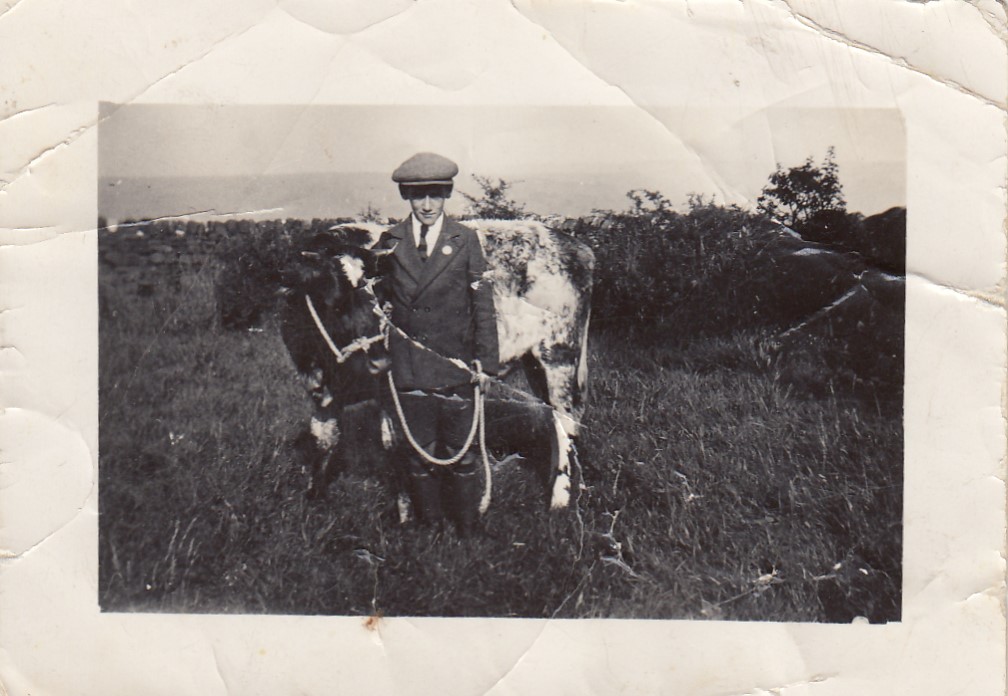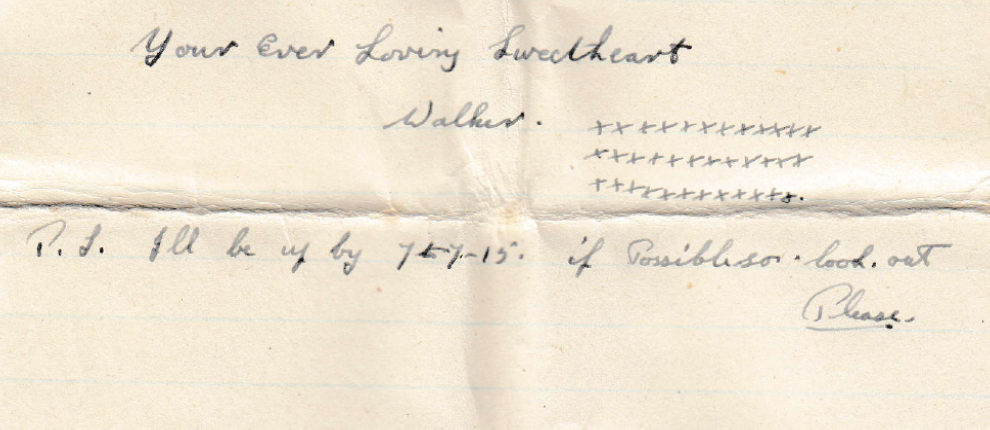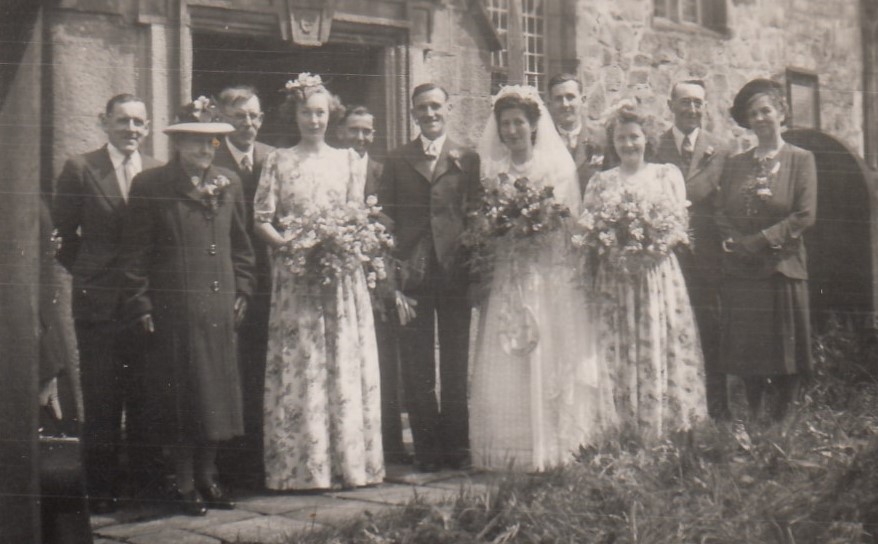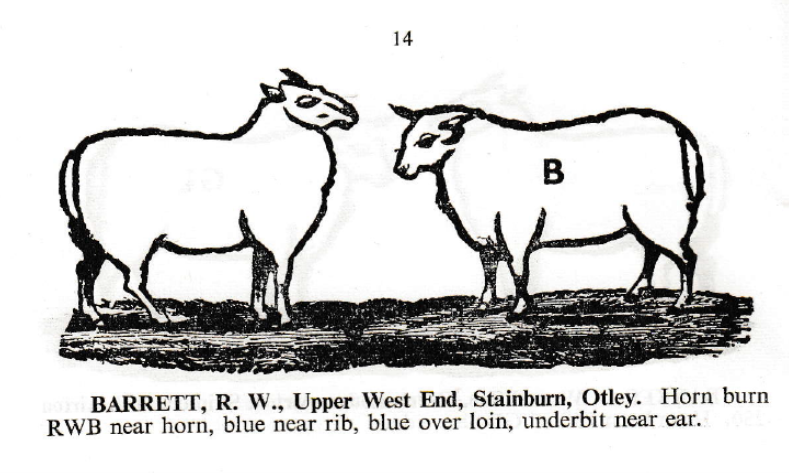
The weekly team check-in call turned to horses and about how horses are now a luxury for farmers when once they were essential. A colleague shared how her grandfather had taken his horse to the front in world war one and brought him back, the two together safe & well, such an amazing family story. Wanting to join in, I switched to screenshare (of the photo above) to talk about Grandpy and his love of shire horses.
Later that same day that my sister messaged on the family whatsapp “Did everyone realise it would have been Grandpy’s 100th birthday today?”
I’ve fretted about how I could ever write about my grandparents in a way that would do justice to both my grandparents’ stories and to my siblings’ memories. Yet somehow the universe conspires to provide the push I need to get past any hurdle or mental block. Stories beget stories and through our memories they live on – provided, of course, that we share them.
1921 was the start of our family, the year three of our grandparents were born. Richard Walker Barrett, aka Grandpy, was the first of the four to arrive. This is my version of his story.
Naming conventions
Richard Walker Barrett was known by many names – Walker, RWB, Dad, Grandpy, Grampy, Granpy (*) but not, as far as I am aware, Richard. In this blog he is Walker until 1975 when his first grandchild (me) was born at which point he becomes Grandpy. Mary, his wife, becomes Nana at the same time.
(*) somehow my siblings & I could never quite agree whether it was Grandpy, Grampy or Granpy and we had 30 or so years to work it out. I think there’s a lesson for the family historians amongst us, the exact name doesn’t matter, it’s the person that does.
Birth and early years

Richard Walker Barrett was born on 19 February 1921 at Scalebar Farm, Gargrave. He was the second of two children, his elder brother, Henry Wellock having been born on 24 June 1918. Wellock was his mother’s maiden name, Walker, that of her mother. Walker’s parents, Mary and George Thomas, had married later in life aged 31 & 30 respectively. Although I used to speculate at the small size of the family it seems that the size of the average UK family had fallen to two by 1939 so they were spot on trend.
Walker & his brother Henry c. 1921. Photo own collection.
When Grandpy was six, the family took over the lease at Toft Gate, Greenhow Hill. This was the Wellock family farm, most recently held by Mary’s brother Benjamin. There’s more about the Wellocks at Toft Gate here.
Then in 1934, when Walker was thirteen, they took on the tenancy of Upper West End Farm, Stainburn which was to be Walker’s home for the next 60 years. Moving farms in 1934 was not easy, for example, the sixteen-year-old Henry had to walk the stock sixteen miles between the two farms.

Education
Walker first went to school in Pateley Bridge – a couple of miles walk which may not sound that strenous, but then this is the Dales and, as Walker put it mildly, it was “up and down the hill.”
As a child he suffered from a mastoid ear and missed out on some of his education. The drainage of the acute abscesses may have been a common procedure, but it was no less painful for that. The young Walker spent a lot of time indoors with his mother – perhaps that was when he learnt to cook, a skill that was to prove useful in his later years.
Walker spent a short time at Stainburn school following the move. Both he & his brother were intelligent enough to go onto the local Grammar school and there were free places by that time for those who passed the relevant exams. However, the uniform proved an insurmountable barrier. George Thomas & Mary didn’t feel they could afford to pay for two sets of uniform. They wished to treat their children equally and consequently both brothers missed out on secondary school. Walker did continue to study though, attending day release classes through the University of Leeds and the Yorkshire Council for Agricultural Education. After attending Junior Day courses of instruction in Agriculture 1934-35, 1935-36 and 1936-37 at Harrogate, he passed his first set of examinations with credit and went onto a ten week course of instruction in Agriculture at the University of Leeds, passing an examination in December 1937. He was always very proud of having “attended University.“

Livestock

As a young boy Walker joined the local calf club, proudly showing the cattle he helped to raise. In 1932, the Young Farmers movement was just starting to form in Yorkshire and Walker became a founder member of one of the first clubs, Nidderdale. When the family moved to Stainburn he joined Wharfedale (founded a year later in 1933) and remained an honorary life member of several clubs for the rest of his life, a reflection of his ongoing support for the movement. He gave a wonderful speech at Nidderdale YFC’s 80th birthday event in 2012 – the sole remaining founder member – which my Mum & I were proud to attend.

His early livestock passion though was horses, the big heavy shire horses bred for farm work and whilst horses were eventually displaced by motorised vehicles, the horse brasses remained.
As WW2 approached, Walker was sent elsewhere to farm – younger sons being available to be called up. His Dad was probably extra cautious having listened to his brother (William Henry)’s experience in WW1. William survived but it would have had a lasting impact. Walker did, however, sign up to the home guard though and received his certificate at the end of the war for his service between 4 July 1941 and 31 December 1944.
Courting & marriage
In 1945 Grandpy started meeting up with a young Mary Booth from Asquith. He was lucky really – Mary’s elder sister, Hilda, “approved” and recommended that Mary step out with Walker rather than another young man. Mary was just seventeen at the time and Walker had reached the grand old age of twenty-four. As a hard-working farmer’s son Walker wasn’t able to cycle the eight miles to see Mary as frequently as the pair would have liked and there are many letters between them.
A year later they were engaged. Mary was a little worried about Walker’s ability to buy a ring. Walker, taking on the role of best man at Dave Liddle’s wedding, was a little late to pick her up. All was well though, they arrived at the shop in Ilkley with half an hour to spare. Perhaps the engagement was in secret at first as on 24 Mary 1946 Mary writes to Walker: “Well darling, I’ve not mentioned anything to Father yet as my courage seems to fail me every time I get the chance to tell him. So if I don’t get anything spluttered out by the week-end I’ll give you the job dear. I don’t think you’ll lose me sweet heart as I could not get along without you now. You seem to be part of me.” The letters change from being signed off “sweetheart” to “your future husband/wife.” 1946 / 47 was not the coldest winter ever in Yorkshire, but it was the snowiest. Conditions made it even harder for the two to meet and the letters between the couple are frequent, tender and loving.

The engagement was a long one with both Walker & Mary working hard to save the money needed to set themselves up together. By 1948 though Walker’s father was deteriorating with Parkinson’s disease. With Henry already settled on his own farm in Leathley the Barretts prepared for Walker to take over meaning marriage plans could move forward.
The valuation of the farm stock, fixtures and fittings at Upper West End Farm was completed on 12 May 1948 and came to a total of £1,280. It included 37 head of cattle (including one Pedigree Ayrshire bull) and fixtures as diverse as “water bowls and piping, as fixed for 25 Cattle in Mistal, the cooking range with oven and boiler, 2 sitting room fire grates and an enamelled iron bath. Walker’s thrifty nature ensured he had sufficient to pay out his brother. His Yorkshire Penny Bank account, started at school, showed a grand total of £615 4s and 6d saved by 1946.
Wedding plans
Walker & Mary were married on 5 June 1948 at All Saint’s Church in Weston. The vicar was Reverend A T M Jasper. The best man was one Leonard Busfield, not part of later life, so I wonder if he was chosen because he was shorter even than Walker’s 5 foot 4 inches! Afterwards they headed off to Whitakers in Manor Square in Otley for “ham & salad.” Walker’s contribution included the £4 he paid to Hopper Lane Garage for the hire of two cars, a string of pearls for Mary to wear at the wedding, and a honeymoon in Scotland. Then there were his wedding shoes which were still going strong sixty years later.

Walker continued to support his parents through his father’s illness and after his death, on 15 December 1951, visited his mother nightly in the nearby village of Leathley. By the end she barely knew him and she, too, died on 16 March 1954.
Children
Life at Upper West End Farm moved on, a son, Richard Arthur, arrived on 16 October 1949, and a daughter, Elizabeth Ann (my Mum, known to her parents and some as Ann, to others as Liz) on 24 March 1952. Mary was advised not to have any more children and ever since then Walker has been especially solicitous (and anxious) about the pregnant mothers in our lives.

Tenant hill farming was tough, but in the 1950s and 1960s provided sufficient living that Walker was able to pay for the necessary uniforms for his daughter to go to the local grammar school, Prince Henry’s in Otley. It must have been a proud moment when she was accepted at Manchester University to study Mathematics, the first in the family to take a degree.
He was equally proud of his son Richard at home on the farm, in the house (Richard was known to be especially caring to his mother) and as a leader in the Young Farmers movement. After Richard reached the age of 21, Walker moved to make him a partner in the farm business.
Then tragedy struck. Richard was killed in a car accident returning from a Young Farmers dance in Darley on 5 February 1972. It’s impossible to know what Walker felt, but he never forgot his son. Although “Uncle Richard” died three years before I was born he has always been part of our family’s life.
With the death of their son, Walker & Mary had to think about another retirement plan and bought a house in Killinghall close to Mary’s sister Hilda on 13 October 1972.
Bob (George Christopher) Houseman was one of Richard’s closest friends and whilst a son-in-law is never the same as a son, when his daughter Ann married Bob on 9 June 1973 the proud father must have reasserted itself. Ann & Bob settled close by in Lindley with Bob working his own family farm.

His first Grandchild (me 😊) arrived on 27 August 1975 swiftly followed by my four siblings and Grandpy came into being. Memories of Grandpy are myriad and his 90th birthday speech at the end of this blog is but a flavour of them. Nonetheless it appears he had a life outside his grandchildren…..
Sheep

Somehow it’s always been sheep and somehow I’ve not absorbed enough to tell this part of the story more fulsomely. Grandpy bred Swaledales, Scottish Blackface, and Jacobs, the latter purely for my Nana to use the wool. He was a regular fixture at both Otley & Skipton auction marts, investing financially in both. His children won prizes for pet lambs, he won prizes in the proper competitions at local shows. He gave us lamb money at Christmas. Some of his most charismatic photos are either leaning over a fence at an agricultural show or walking down the lane shepherds crook in hand. Towards the end he was quite clear that he “was keeping the sheep rather than them keeping me” yet he never officially retired.

Stories
As far as a granddaughter can tell he had a pretty blue sense of humour, one that his friends loved. There’s a long, handwritten, joke he used to share around at weddings, which my Mum still didn’t feel was appropriate to read out to her 45 year old daughter. Instead, I leave you with this short verse he used to carry around.
“He offered her his honour. She honoured his offer, and, all night long, it was honour and offer”.
Read it aloud, with a Yorkshire Dales accent, and it’ll make more sense.
Second tragedy
On 10 December 1984, another tragedy struck. Walker’s son-in-law, Ann’s husband, my Dad, Bob, was killed in a car accident. This is my Grandpy’s story, not mine, my Dad’s or my Mum’s. They will come later. So all I will note is the Grandpy loved his son-in-law and felt his death keenly.

Retirement & later years
It wasn’t until 28 October 1998, at the age of 77, that Grandpy bought his first piece of farmland – Napes Hill, the “Top Land” as we knew it, was his proud possession for the rest of his life.
This was the time that Grandpy & Nana finally decided it was time to retire. By which I mean move from the farm house rather than stop owning sheep. Nana’s sister was now widowed, remarried and had moved, so Killinghall didn’t feel an attractive option. Instead, they bought a bungalow on St Richard’s Road. Selling up at Upper West End Farm was a major social event in the local calendar. However, with a landrover parked on the drive of an Otley suburb, a kennel for the dog and a garage full of sheep food, life didn’t have to change that much for Grandpy.
Sadly, Nana died, too early, on 31 January 1999 aged only 70. Grandpy carried on. The auction, his sheep, his daughter, his grandchildren (probably in that order) kept him going. I saw his sense of responsibility in that time – to attend the graduations, to have the matching tie for weddings, to take out the widows of his friends. He had a plan for that latter one – “always take at least two out at once so they didn’t get ideas”. He was fiercely independent. He shopped for his food in Otley, drove to the Top Land, travelled to auctions and invariably let the mobile his daughter bought him “for emergencies” run out of battery.

Mum & I hatched a plan to “kidnap” him in 2013 – a train trip where only on the train would he know he was going to London. Train to Kings Cross, taxi to my house, lunch in the garden and then reverse the journey. That is one of my fondest memories and a way of easing the angst he still held about his granddaughter living in the big city of London.
It was prostate cancer in the end. A few months before he died he went into hospital and we knew, finally, he couldn’t go home alone. So, he came to live at my Mum’s. We had Mother’s Day together – his daughter, five grandchildren and four great grandchildren – and then on Easter Saturday (19 April 2014) Walker Barrett died, aged 93. He was buried with his sweetheart in St Oswalds, Leathley.
This page ends with his 90th birthday speech which helps to explain quite how special he was.
Ladies and gentlemen, friends & family. Thank you for joining us to celebrate the 90th birthday of Richard Walker Barrett.
To the polite he is Mr Barrett, to many here he is Walker, to a very few he’s uncle and to one he’s Dad. There are several names I am sure which are not fit to repeat this lunchtime, but to me, Helen, Anna, Sharon and David, he is quite simply Grandpy.
I could start and tell the story of the young man who worked on the farm and loved his shire horses, who cycled miles to court and then marry a girl seven years younger than himself. I could tell of the pride at the birth of his firstborn son and his second child a beautiful daughter. I could touch on the grief of losing Richard so young.
But I’m not here to tell the story of a man of 20 or 30 or even 50, I’m here to tell the story of Grandpy, a man who was born little more than 35 years ago.
This is a generous man – a man who used to bring back a Mars bar from the auction and carefully cut it into five for five greedy grandchildren. A man who found out that giving his first grandchild lamb money at Christmas could work out quite expensive when another four arrived. It was Grandpy who lent me his car when I was learning to drive and didn’t complain when I drove it into a tree, but simply bought a new one and made me get back in and continue so I didn’t lose my nerve.
It’s a man who has some very specific tastes in food – he likes Coleman’s English mustard on his ham sandwiches and his Yorkshire puddings have to be made by Auntie Bessie. With the right type of toffee, he’s a whiz at toffee crisp. But when grapes are out of season his true Yorkshire blood shows through “not paying that bloody much”
A man who happily drove us to agricultural shows in remote parts of the Dales, where we would sit drinking tea from a flask and eating blue ribbons biscuits, but a man who also considers that the ten miles into Leeds takes him into a foreign land.
He’s a typical Yorkshire farmer, with flat cap and shepherd’s crook, although his choice of sheep dogs was called into question when he came back with little Tan. I thought I’d never see him happier than when he was up at the Top Land tending the sheep or leaning over a fence at an auction, but then I saw him hold his great grandchildren and knew that now I had.
Typical for Grandpy, when my wedding came around he dressed smartly with polished shoes and a new tie to match my dress. When it came to the speeches I was a little concerned at asking him, his reputation for rude jokes proceeds him after all, but instead he passed on some of the wisest words I’d heard – “make sure whatever happens in the day you never go to bed without a good night kiss”
He has other wisdom too, approaching life with the motto that “if a job’s worth doing it’s worth doing well” and “you’re only as young as the woman you feel” but these days I think the women scare him – he has to take two out at once so they don’t get any ideas!
You will all, I am sure, have your own stories to add, and I hope you have had the opportunity today to share some, but whether he’s Walker or Dad or Uncle, Grandpy or Great Grandpy I’d ask you all to raise your glasses, Happy Birthday Grandpy”
To Richard Walker Barrett, much loved, much missed.
LINKS
William Henry Barrett – the story of Grandpy’s uncle & why Grandpy potentially avoided military service.
St Oswald’s church – a place of family joy and sadness – the final resting place for Grandpy, Nana and their son Richard.
Sardines & Cadbury’s Roses – a short story about staying with Nana & Grandpy
Two families, one community – a 1950s gathering of all four grandparents
There‘s snow and then there’s Yorkshire snow – extracts from Grandpy’s oral interview & letters to Nana.
Nana & Grandpy’s ruby wedding anniversary.
The naming of our grandparents – including what Grandpy called two of his grandparents.
The story of the toffee crunch tin.
OLDER ANCESTORS
Grandpy’s parents (my great grandparents)
Mary Wellock (1886 – 1954) & George Thomas Barrett (1887 – 1951)
What a birthday date book taught me about WW1 – the first of two stories from Mary Wellock’s birthday date book
Mary Wellock’s life in a birthday book – the second of the two stories
Grandpy’s grandparents (my great great grandparents)
Mary Walker (1845 – 1921) & Richard Wellock (1844 – 1931)
The Wellocks, Toft Gate and the Great Agricultural Depression – is the story of Mary & Richard’s family and also of Richard’s parents, Isabella Preston & Thomas Wellock
A road trip to Estevan to travel in the footsteps of David & Major Preston, sons of Mary & Richard.
A Wellock divorce in 1899 recounts the tale of two of Richard’s Wellock cousins.
Jane Brooks (1851 – 1929) & Henry Barrett (1856 – 1924)
William Henry Barrett – the story of Jane & Henry’s son, brother to George Thomas Barrett.
Grandpy’s great grandparents (my great great great grandparents)
Elizabeth Hornby (1823 – 1858) & Robert Walker (1823 – 1873)
Elizabeth & Robert are one of three relationships explored in my sister is also my aunt
Isabella Preston (1814 – 1886) & Thomas Wellock (1810 – 1885)
The circumstances surrounding the death of Benjamin Preston Wellock (Thomas & Isabella’s son) are spookily similar to that of my own Dad.
Nancy Serjeanston – the tale of a deaf & dumb woman who lived with the Wellock family for over 30 years.
The Wellocks of High Garnshaw – a 250 year connection. Contains an end of the line couple, Mary and James Sympson.
The antithesis of fortune – three stories of pauper ancestors – includes the story of Anges (Nanny) Sidgewick – mother of Isabella Preston
Finding Agnes Symson – my 8 x great grandmother and wife of George Wellock.
Icelandic volcanoes, snow and eighteenth century poverty in Arncliffe – Sarah (Dickinson) & John Windsor, parents of Mary Windsor, mother of Thomas Wellock faced the impact of the Laki volcano erruption. End of the line.
Mary Holmes (1828 – 1876) & George Brooks (1829 – 1901)
A brief biography of the couple
Elizabeth Prout (1822 – 1875) & Thomas Barrett (1820 – 1890)
Our gamekeeping heritage – a brief biography of the couple
